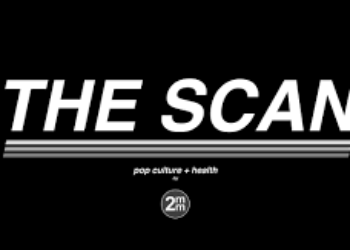Intranasal oxytocin may improve sociocommunicational deficits in autism
Image: PD
1. Intranasal oxytocin in individuals with autism spectrum disorder was associated with quicker and more frequent judgments based on communicated nonverbal information.
2. The increase in nonverbal information-based judgments was mediated by increased brain activity and functional coordination in the medial prefrontal cortex.
Evidence Rating: 1 (Excellent)
Study Rundown: Individuals with autism spectrum disorder (ASD) often have difficulty understanding complex social communications with conflicting verbal and nonverbal information—irony for instance. This study demonstrates that intranasal oxytocin therapy can improve nonverbal information-based judgments (NVJs) in patients with ASD. This study was able to correlate quantitative increases in NVJs with quantitative increases in NVJ-specific brain activity in the medial prefrontal cortex (mPFC), and suggests that oxytocin therapy can improve certain sociocommunicational deficits seen in ASD. However, more thorough research is needed to investigate the effect of oxytocin on other sociocommunicational deficits associated with ASD, and whether oxytocin therapy is safe and effective over long-term administration.
Click to read the study, published today in JAMA Psychiatry
Relevant Reading: Identification and evaluation of children with autism spectrum disorders
In-Depth [randomized controlled trial]: This randomized, double-blind, placebo- controlled, crossover study was conducted in two sessions. 40 patients were randomized to two arms, either receiving intranasal oxytocin or placebo in the first session. The two study arms crossed over during the second session, which was conducted one week later. During each session, participants were monitored in an fMRI and shown a series of 1.5-second-long movies in which professional actors expressed congruent and incongruent verbal and nonverbal stimuli. Actors said either an emotionally positive or negative word, while displaying emotionally positive or negative facial and vocal expressions. The participants were asked to judge if the actor was a ‘friend’ or ‘foe’ in each movie, and responses where characterized as verbal information-based or nonverbal information-based.
When shown incongruous stimuli, patients who received intranasal oxytocin made quicker (P = 0.02) and more frequent NVJs (P = 0.03) than participants who received the placebo. Additionally the patients who received oxytocin showed significantly increased NVJ-specific brain activity in the mPFC (P < 0.001). These effects were independent of the order in which the drugs were administered. Moreover, the number of NVJs was significantly correlated with the increase in NVJ-specific brain activity on fMRI in the anterior cingulate cortex (ACC) and dorsal medial prefrontal cortex (dmPFC) (P<0.001). The decrease in NVJ response time was similarly correlated to increased NVJ-specific activity in the ACC and dmPFC (P=0.01 and P=0.001 respectively).
By Mike Milligan and James Jiang
©2012-2013 2minutemedicine.com. All rights reserved. No works may be reproduced without expressed written consent from 2minutemedicine.com. Disclaimer: We present factual information directly from peer reviewed medical journals. No post should be construed as medical advice and is not intended as such by the authors, editors, staff or by 2minutemedicine.com. PLEASE SEE A HEALTHCARE PROVIDER IN YOUR AREA IF YOU SEEK MEDICAL ADVICE OF ANY SORT.









